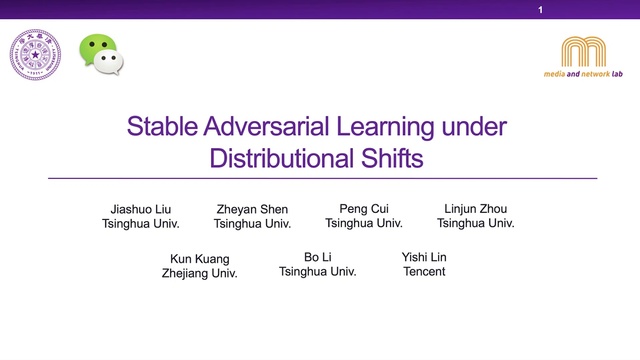Abstract:
A central goal of machine learning is to learn robust representations that capture the fundamental relationship between inputs and output labels. However, minimizing training errors over finite or biased datasets results in models latching on to spurious correlations between the training input/output pairs that are not fundamental to the problem at hand. In this paper, we define and analyze robust and spurious representations using the information-theoretic concept of minimal sufficient statistics. We prove that even when there is only bias of the input distribution (i.e. covariate shift), models can still pick up spurious features from their training data.
Group distributionally robust optimization (DRO) provides an effective tool to alleviate covariate shift by minimizing the worst-case training losses over a set of pre-defined groups. Inspired by our analysis, we demonstrate that group DRO can fail when groups do not directly account for various spurious correlations that occur in the data. To address this, we further propose to minimize the worst-case losses over a more flexible set of distributions that are defined on the joint distribution of groups and instances, instead of treating each group as a whole at optimization time. Through extensive experiments on one image and two language tasks, we show that our model is significantly more robust than comparable baselines under various partitions.









































